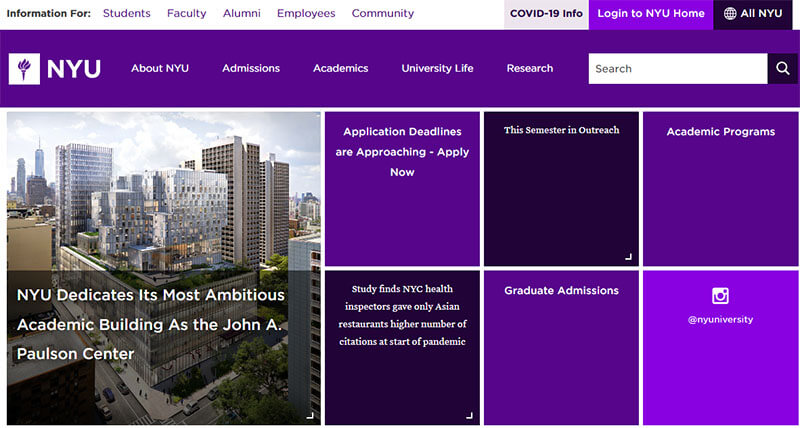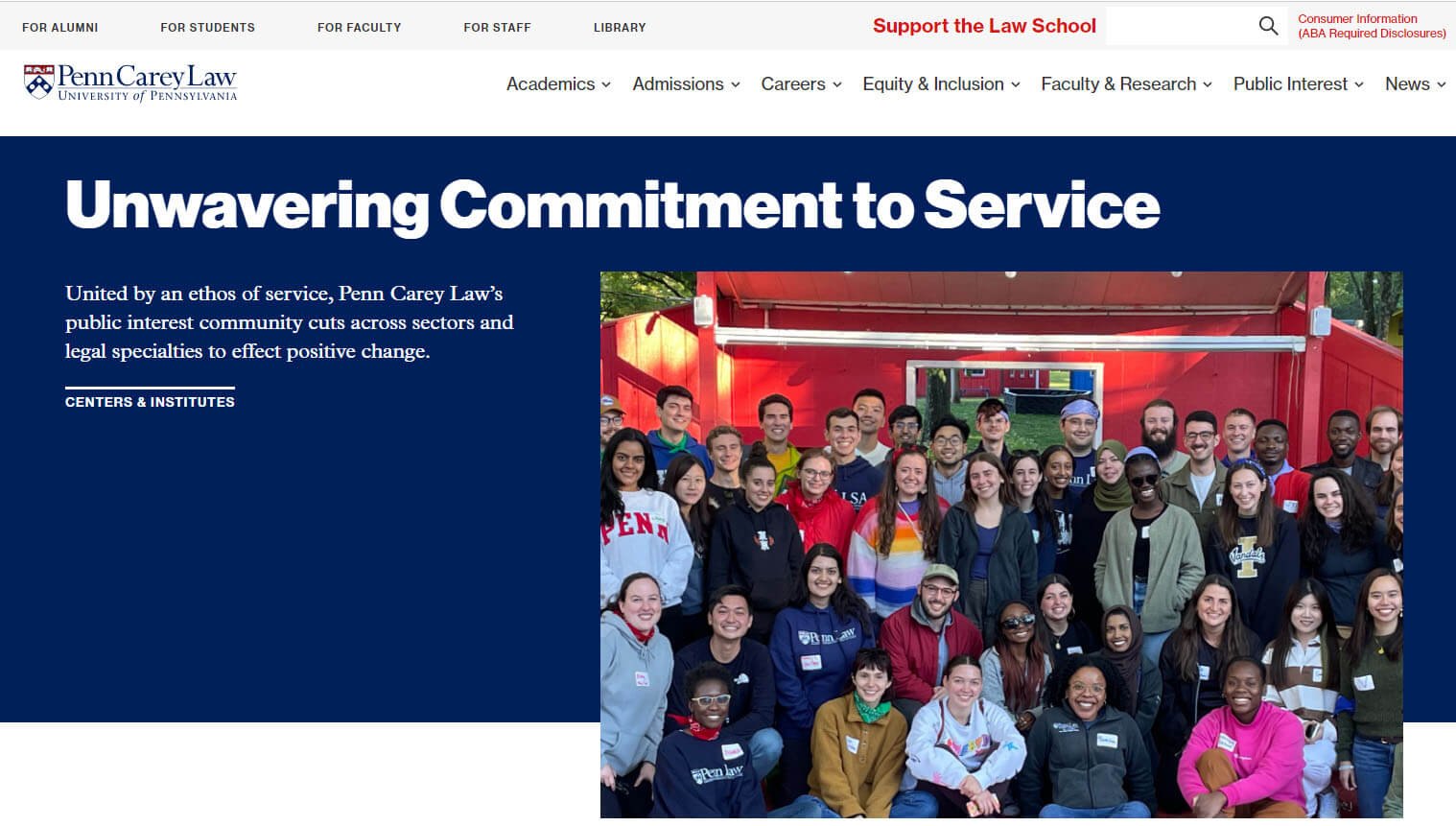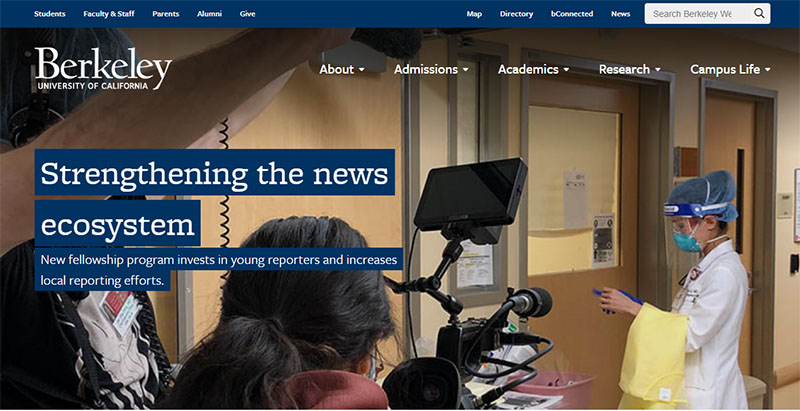
Top 10 Law Schools in the US
Best U.S. Law Schools
The majority of law students seek for legal jobs within the US, in law firms, multinational organizations, or the judiciary. In contrast, you may be considering earning an LLM or JD in the US to pursue a career in academia or increase your chances of joining an international organization. You must be aware of your options as soon as you decide to study in the ranked law schools. Start by researching the most sought-after legal occupations or the typical salaries of attorneys and the world best law universities to carry out the studies.
It is a good time for international students to study law in the best US law schools right now. According to the U.S. BLS reports, the overall employment of legal occupations is predicted to expand by 10% in the time period from 2021-2031, adding 131,000 new jobs in that time.
Contact us for top law schools email list

However, only 34,000 students in the US graduated from law school in 2020, potentially leaving 12,000 open positions for attorneys per year. The best countries to study law are UK and USA. Their colleges offer a well-respected foundation for a legal career appropriate for many nations and regions. And the best university to pursue law is Yale University, and Stanford University, among others. Here you will explore the top law schools in the world and the career options after a degree in law.
The List of Top 10 Law Schools
Rank 1. Yale University
New Haven, CT
#1 Best Law Schools
Tuition and fees: $69,433 (full-time)

Source: Yale University
Attending Yale Law School is an unsurpassed ambition for young attorneys. It is the best among the law schools ranked and the most-demanded institution in the country. There are distinguished faculty, small class sizes, an unconventional grading system, and a large number of accomplished and influential alumni, including three sitting Supreme Court Justices, two former Presidents, and numerous other influential figures in politics, academia, business, and the media. The majority of students who want to practice law will be drawn to pursuing a Juris Doctor (JD) degree. Yale Law School provides several graduate degrees besides its JD program, including the Master of Laws (LLM), Master of Studies in Law (MSL), and Ph.D. in Law. You must register for the Law School Credential Assembly Service (CAS), which you can obtain online through the Law School Admission Council, to apply to Yale Law School. After that, you can submit your whole application via LSAC online. Although there is no required GPA or LSAT score for applicants, a member of the Yale Law School class of 2025 had the lowest GPA and LSAT score of 3.17 and 154, respectively.
Rank 2. Stanford University
Stanford, CA
#2 Best Law Schools
Tuition and fees: $66,396 (full-time)

Source: Stanford University
As a part of one of the top research institutions in the world, Stanford Law School offers many opportunities for multidisciplinary collaboration. Students have access to graduate-level research and policy-oriented study in fields like constitutional law, consumer privacy, criminal justice, energy policy and finance, environmental and natural resource law and policy, fair use, human rights, international conflict and negotiation, the rule of law, international and comparative law, corporate governance, among others, through Stanford Law School's more than 25 innovative academic programs, centers, and projects. The academic schedule at Stanford Law is in accordance with that of the rest of the institution to provide a legal education that blends the study of law with other academic fields, giving our students specialized expertise in their field of practice. This comprises 28 combined degree programs and virtually endless customization options.
Rank 3. University of Chicago
Chicago, IL
#3 Best Law Schools
Tuition and fees: $72,081 (full-time)

Source: University of Chicago
Every year, the University of Chicago law school accepts over 5,000 applications. The admissions committee reviews each fully filled application for selecting the batch. Chicago Law also offers several dual-degree programs in subjects like public policy, international relations, and religious studies besides the JD/MBA. A number of certificate programs, including ones in corporate leadership and health administration and policy, are also offered by the law school. The unique Doctor of Business Leadership Program combines elements of the MBA program into a certificate to teach aspiring lawyers how to "speak the language" of business for candidates interested in financial statements, capital structures, and complex transactions. The Law School provides about 200 courses and seminars in a regular academic year. Moreover, students can enroll in classes at Chicago Booth and other UChicago schools during their LLM program.
Rank 4. Columbia University
New York, NY
#4 Best Law Schools
Tuition and fees: $76,088 (full-time)

Source: Columbia University
The LL.M. Program at Columbia Law School seeks to enroll students dedicated to academic and professional achievement who have demonstrated these values and skills via their prior work experience, recommendations, and academic records. In addition to your potential, admission decisions are made based on your demonstrated drive and self-discipline. Columbia University provides a generic LLM degree allowing students to choose their courses from the Law School's extraordinarily extensive course selection. To ensure that each LLM student's year at Columbia is satisfying personally and intellectually, the Office of Graduate Degree Programs advisers collaborate closely with our professors and other administrative departments. The Dual Application for the LLM and ELLM can be used to apply for consideration for both programs. There is only one application cost that must be paid. Applying to both prevents your chances of getting accepted to either program.
Database of School, College, & Universities
Rank 5. Harvard University
Cambridge, MA
#4 Best Law SchoolsTuition and fees: $68,962 (full-time)

Source: Harvard University
You will have a possibility of getting admitted to Harvard Law School if you have an LSAT score of 170 or above and a GPA higher than 3.75. A one-year degree program called the LL.M. (Master of Laws) normally enrolls 180 students from about 65 nations. The Graduate Program seeks intellectually curious, thoughtful students with various career goals, backgrounds, and legal systems. Students pursuing LL.M.s at Harvard include practicing attorneys, government employees, judges, diplomats, law professors, law students, human rights activists, doctoral candidates, and other professionals. All students at the School benefit greatly from the educational experience provided by the diversity of participants in the LL.M program.
Rank 6. University of Pennsylvania (Carey)
Philadelphia, PA
#6 Best Law Schools
Tuition and fees: $70,042
Penn Carey Law offers a demanding full-time LLM program. With this generic LLM degree, you can tailor your coursework to concentrate on a particular legal field or to discover new interests. Additionally, two concentrations are available: Global Security, Sustainability, Human Rights, and Intellectual Property and Technology Law. You can register for the Wharton Business and Law Certificate ("WBLC"), created especially for Penn Carey Law LLM students and taught by esteemed Wharton faculty. There is no need for a different application for the WBLC because it operates simultaneously with the LLM program. Before graduating from Penn Law, students must do at least 70 hours of pro bono work. Students can spend their leisure time participating in more than 100 student clubs, like Penn Law Boxing and the Urban Law Reform group, legal clinics, and community service initiatives, in addition to participating in community service projects.
Rank 7. New York University
New York, NY
#7 Best Law Schools
Tuition and fees: $73,414 (full-time)

Source: New York University
With more than 95 full-time faculty members, 375 courses, 16 fields of study, more than 30 centers, and more than 80 student groups, NYU Law is a powerhouse of knowledge. The Law School has long played a pioneering role in bringing about modifications that have reshaped legal education and ensured that our graduates are prepared for practice in the modern world. In terms of offerings, NYU Law boasts the broadest selection of legal and business topics. Students seeking a legal degree as a foundation for executive roles in business can receive training through the Mitchell Jacobson Leadership Program in Law and Business. The Institute for Executive Education at NYU Law develops legal programs for organizations and individuals at the nexus of business, policy, and strategy. The programs equip professionals with cross-disciplinary fluency and a greater understanding of the issues at hand. Students can pursue dual degrees with organizations like the Harvard Kennedy School of Government and Woodrow Wilson School of Public and International Affairs or joint degrees with other NYU schools like the highly regarded Stern School of Business. Students can live on the residential campus, and there are over 50 student clubs to check out. Law students can study at roughly 15 universities worldwide through the School's exchange programs for international students.
Looking for email marketing services?
Rank 8. University of Virginia
Charlottesville, VA
#8 Best Law Schools
Tuition and fees: $66,500

Source: University of Virginia
Virginia Law School, regarded as one of the best in the country, has trained generations of lawyers, cultivating a commitment to leadership, ethics, and community service. Virginia offers more than 250 seminars and courses annually, an externship program, and 20 clinics for practical training. Nearly half of all legal teachers possess graduate degrees (other than the JD) in disciplines like psychology, economics, philosophy, history, medicine, and religion, which benefits students interested in interdisciplinary topics. Multiple academic programs, such as those in human rights, criminal justice, environmental law, legal and constitutional history, race and the law, intellectual property, health law, and immigration law, enrich the University of Virginia's curriculum.
Rank 9. University of California, Berkeley
Berkeley, CA
#9 Best Law Schools
Tuition and fees: $56,858 (in-state, full-time)
There are eight areas of concentration available at Berkeley Law, such as Business and Start-ups, Law and Technology, and Environmental Law. The School is likely best recognized for its knowledge of intellectual property law, but it should also be noted that it has one of the first environmental law programs among all law schools. Students in environmental law can enroll in programs at other Berkeley graduate schools and participate in Ecology Law Quarterly, a prestigious student-run magazine. Berkeley Law offers several dual degree programs, including a JD/MBA, a JD/MSW, and JD/MA in Asian Studies and Energy and Resource Studies. The UC Berkeley School of Law does not use letter grades and GPAs. In addition to offering specific curricular degrees in fields like Energy and Clean Technology Law and Environmental Law, the law school has pioneered curricula including intellectual property law and technology-related law. Students can adjust their academics to match their interests starting in the second semester. They can even choose their electives at the institution, which also provides interesting survey courses like Wine Law.
Rank 10. University of Michigan--Ann Arbor (Ross)
Ann Arbor, MI
#10 Best Law Schools
Tuition and fees: $64,098 (in-state, full-time)
The Michigan Law community normally includes students from more than 20 nations and 30 U.S. states, with around 30 to 40 LLM students and 1,000 JD students. As reflected by our devoted network of more than 22,000 Law School alumni located all over the world. The regular LLM program offered by Michigan Law allows students to choose their courses with a considerable deal of freedom, allowing them to customize their curriculum to their preferences. Since there are no obligatory courses in the LLM program, students can concentrate on one legal topic of study or experiment with others. Two courses are designed expressly for LLM candidates with a background in civil law, including an optional introduction to American constitutional law and an optional research and writing course. The Law School only offers two LLM-specific courses; LLM students and JD students share all other classes.
How to find the world best law universities?
The search engines will help you find the top law schools in US and the top law programs of the schools. You can simply put up keywords like "top law schools," "top US law schools," or location-specific keywords like "law schools in New York ranked" for updated results. There are many websites, such as U.S. News, Forbes, and more, that show the rankings and other relevant information for your knowledge. The career counselors can also help you to choose the best law schools. Sometimes, applicants choose colleges they believe to be "prestigious," those with a certain field of study, or those with the highest financial aid. Some applicants could be required to remain in a specific location due to obligations related to their families or jobs. In order to choose the world's top law universities, there are numerous criteria to take into account. Selecting the best colleges for law is a personal decision. Before choosing the top law schools in the world, take note of these factors:
- Curriculum: The first year of classes at all good law schools is comparable but not identical. So make sure you go through the curriculum first. The Civil process, criminal law, contracts, legal research and writing, legal methods, torts, constitutional law, and property are all part of almost every good schools for law core curriculum, but not always all of these are taught in the first year. The JD curriculum at some law schools only includes a small portion of necessary courses, while the curriculum at other law schools includes needed courses and additional experiences. In general, though, your second and third years of law school will allow you to enroll in various electives.
- School Offerings: Take into account the student body's size, school rankings, and ethnic heritage, as well as the neighborhood's location, size, and character. Keep in mind that you will spend the next three years living at the law school. What sort of setting will you flourish in? Get to know the faculty and their specialization; school websites will provide information on each professor's qualifications.
- Inclusion and Diversity: Consider reaching out to student organizations (or faculty members) that represent your racial/ethnic heritage or other aspects of your identity when studying law schools. For instance, there are associations for legal students that are Asian, Black, Hispanic, and Native American and associations based on religious connections. The LGBTQ+ Guide to Law Schools published by LSAC has more details regarding LGBTQ+ organizations and instructors at ABA-approved law schools. You can obtain an online directory that provides disability resources and student organizations at each ABA-approved law school through the ABA Commission on Disability Rights.
- Financial Implications: Any LSAC-member law school's financial aid office or website is the best place to find out how to pay for a legal education. Tuition at law school is possible from a few thousand dollars to more than $50,000 a year. The degree might cost more than $150,000 when housing, food, books, transportation, and other personal expenses are included. Most students who use student loans see them as an investment in their future. You should immediately develop a financial plan that considers your spending throughout law school, loan repayment alternatives after you graduate, and your anticipated future income.
- Evaluating Yourself: The conventional consensus is that you should have a strategy when choosing which law schools to apply to. The majority of applicants have little trouble deciding between safe institutions, where admission is practically certain, and dream schools, which are almost but not quite out of reach. You can evaluate your chances of participating in ABA-approved top ranked law schools using LSAC's UGPA and LSAT Score Credential Search.
Get to know about the best law colleges near you
Know about the top law schools in the world for your future study plans. If you want to pursue law in the best NYC law schools, you can target institutions like Columbia University, New York University, Cornell University, Fordham University, among others. These are the most reputed law schools in New York. The law schools in California are also the most renowned institutions to grow a career in law. You can opt for the top law schools in California like Stanford University, the University of California, Berkeley, the University of Southern California (Gould), and the University of California College of the Law, San Francisco as such. The best law schools in California will certainly help you to explore further career opportunities as a lawyer.
If in case you want to pursue your career in Canada, there are many law schools in Canada. To continue their studies, the competitive candidates for the General Category should have at least an "A-" average (GPA 3.7) in the final two years of their undergraduate program and an LSAT score of at least 160. The University of Alberta Faculty of Law, the Allard School of Law (University of British Columbia), the University of Calgary Faculty of Law, and Dalhousie University Schulich School of Law are the best Canadian law schools.
If you want to explore the best colleges for pre law, check the websites of these institutions Harvard College, Yale University, Northwestern University, and Georgetown University. These schools are ranking as the best pre law schools in the US.
The Demanding Law Degrees for your ultimate career growth
Do you want to know what legal fields are trending now? Cybersecurity, cannabis, labor, elder law, energy, intellectual property, and health are expanding legal fields. Not just new attorneys who are considering moving into one of these eight fields are impacted by these development areas. They also affect more seasoned attorneys whose current area of practice overlaps with these newer ones. For instance, employment lawyers must keep labor law-related regulations and statutes current. The same is true for insurance and health law professionals.
The Juris Doctor (JD), Master of Laws (LLM), and Doctor of Jurisprudential Science are the three most popular legal degrees in the US. There are numerous other degrees in the legal field, such as the Master of Jurisprudence (MJ), Master of Legal Studies (MLS), Juris Master (JM), and Master of Studies (MS), that do not let you advise clients or represent them in court.
In contrast to many other nations, practicing law in the United States necessitates an advanced JD or similar degree, that is, three years of training on top of a four-year bachelor's degree. Pre-law is frequently studied in undergrad by students who are certain they intend to pursue a legal career. For pre-law students, frequent curriculum options include public policy, political science, social justice, public affairs, history, economics, and philosophy.
You will almost certainly be required to take the LSAT, or Law School Admission Test, the standardized exam for law school admissions. Top legal schools like Harvard University and Georgetown University have made the LSAT optional or "supplemental," allowing students to take the GRE (Graduate Record Examination) instead.
The three sorts of legal degrees—Juris Doctor, Master of Laws, and Doctor of Jurisprudential Science—that is required to practice law in the US
⟶ Juris Doctor
The primary qualification needed to practice law in the US is a Juris Doctor. A JD program normally lasts three years, and when combined with the bar exam, you can get the necessary license to practice law.
Education Marketing Resources
- 2023 Best Global Universities: Top 50
- The Metaverse In Education - Lessons Get Converted Into Virtual Reality
- Why Online Learning is the Future of Education in 2023
- Best universities in the UK 2023 - University Rankings
- The Top Five Critical Issues Facing Educators in 2023
- 10 Marketing Strategies to Attract More Students in 2023
- 2023 Best Public Elementary Schools in America
- 2023 Best Boarding High Schools in America
⟶ Master of Laws
A Master of Laws, or LLM as it is frequently abbreviated in the United States, is an advanced law degree intended for experienced attorneys seeking academic positions or high-level government posts. With an LLM, you can develop knowledge in specialized legal areas like tax, labor, immigration, or intellectual property law.
⟶ Doctor of Juridical Science
A bachelor's degree and often an LLM are prerequisites for the PhD-level law degree known as a Doctor of Juridical Science or SJD. The highest level of advanced law education in the US is the SJD, intended for future legal scholars. Like most Ph.D. programs, SJDs are self-driven; you create and carry out your study plan. They place a strong emphasis on independent study, research, and publication.
The Top legal careers in the US
You must obtain a law degree from an institution recognized by the American Bar Association and pass the bar exam, which is the US's primary means of obtaining a license to practice law. It's also typical and strongly advised to do a clerkship with a judge or an internship with a business, nonprofit, or government organization before graduating. In the US, an attorney makes, on average, $106,627 per year. You can expand your network and get practical experience by working at a law firm over the summers and during breaks from School or by serving as a judge's law clerk. The legal profession in the US has nearly always been included among the highest-ranking and highest-paying jobs, making it a popular career choice. The District of Columbia ($198,820), New York ($179,060), California ($176,610), Massachusetts ($167,980), and New Jersey ($153,800) are the states paying high salaries for lawyers.
The top legal occupations in the US are listed below:
⟶ Litigation and trial lawyers
There is a high demand for attorneys who can represent clients in both civil and criminal proceedings. When they successfully win lawsuits for their clients, they take the lead in becoming the highest-paid legal experts. The income and experience can change depending on where and in which cases they work.
⟶ General counsels
General counsels lead the corporations' legal departments. They typically receive a salary at the executive level and have the potential to earn more through stocks or other options.
⟶ Judges
The size of the salary package for judges is increased by the generous benefits, expense accounts, and contributions made on their behalf to retirement schemes.
⟶ Academia
It can be not easy to land a job teaching faculty in a law school, even as a teaching assistant. Top candidates would need to have a law degree from a prestigious law school, excellent grades, employment experience in the legal field, publications in scholarly journals, etc., making law school teaching one of the highest-paying careers in the US. The institution, the area, the number of years of experience, and the degree of education all play important roles in their salaries.
⟶ Conciliators, arbitrators, or mediators
Arbitrators frequently practice law or have expert knowledge in a particular industry. They act as a neutral third party to hear and resolve disputes between opposing parties. On the other side, mediators assist parties in resolving conflicts. Similar to mediators, conciliators aid in bringing conflicting parties to an agreement.
⟶ Roles of Legal Specialists
Roles for legal specialists in particular sectors of the economy are also quickly gaining prominence. In addition to writing, revising, and updating legal papers and ensuring their accuracy, a legal specialist may assist with scheduling, getting equipment, and editing presentations and notes.
⟶ Law Firm Management
Law firm administrators typically can work regular hours and earn a significant salary in larger companies. In addition to managing non-legal duties like financial administration and reporting, business development, personnel resources, facilities management, technology, marketing, and practice management, they also handle the business and administrative aspects of running a law firm. This can be a fantastic career choice for those looking for legal employment with regular working hours.
⟶ International organizations
Candidates frequently consider a career with an international organization like the UN, international charities, or campaigning organizations, although it is not among the highest-paying occupations. Many college students and recent graduates may think about a career working for an international organization, especially if they have a background in law and an interest in international relations. Few possibilities exist for recent graduates to work in this profession other than as an intern or volunteer, although it is long-term rewarding.
⟶ Legal consultant/recruiter
Law firm consultants appreciate a dynamic work atmosphere, flexibility, and the opportunity to participate in events, travel, and socialize. The top US law firms significantly rely on legal recruiters for new hires. Legal recruiters can find bright law graduates who can also review their resumes and set up interviews. Having some recruitment experience can improve your chances at this position.





